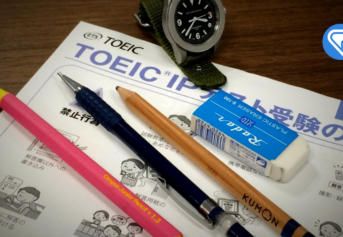
How Many Words Do We Need to Speak a Foreign Language?
It is tempting to believe that we can just acquire a small number of very useful words and sort of get a jump start in a language. I have never found that…

It is tempting to believe that we can just acquire a small number of very useful words and sort of get a jump start in a language. I have never found that…

TOEIC, the Test of English for International Communication, is probably the most widely taken test of English language proficiency in the world. TOEIC is taken by around seven million people every year,…

I often hear this question from adult learners. Sometimes my followers on Youtube, Facebook, or Twitter bring this up. In fact, not so long ago I had the following request from one of my followers.
“I want to do some research on the problems of older language learners and see what I can do to help them.”
I replied by asking. “What do you consider to be an older language learner?” His answer “over 40”.

Language Learning Progress has been transcribed from Steve’s YouTube channel. The original video was published on August 13, 2013 Hi there, Steve Kaufmann here. Today I want to talk about how we…

I studied Czech a few years ago so my statistics at LingQ for that language are not current. However, the statistics from my recent Polish challenge illustrate the fact that we can learn or add to our “known words” total well over 100 words a day. In fact in the case of Polish (since I know other Slavic languages) it is over 300 words a day. You can learn 100 words a day, if you are willing to put in the time.

Independent learning is the most important issue in education today, and in many ways the most elusive or difficult issue to deal with. More than class size, teacher accreditation, or the latest…

The goal of fluency in a foreign language can often seem vague and elusive. It is not always clear what fluency means. Those who have not experienced the feeling of achieving fluency…

When I wrote my book The Linguist: A Personal Guide to Language Learning, I began with what I called ‘The Parable of the Crooked Tree’. The author of the parable was Zhuangzi, an early exponent of Taoism, a school of Chinese philosophy from over 2,000 years ago. I referred to Taoism on a number of occasions in my book. Zhuangzi’s basic principle in life was to follow what was natural, what was effortless and not try to force things.

I am starting to believe that memory is not that important when it comes to language learning. I have recently started learning Greek. Most of the words are completely unfamiliar to me,…
What constitutes the essence of achieving a breakthrough in language learning? I think that the key lies in the word “linking”.
First of all learners must form emotional links with the language they are learning. They must be interested in the language, in the people and in some aspects of the culture.
I've been learning languages for over 50 years and I've tried all kinds of approaches.
Get my 10 Free Secrets
I have never learned as quickly or as enjoyably as I do now on LingQ.
Try LingQ Now